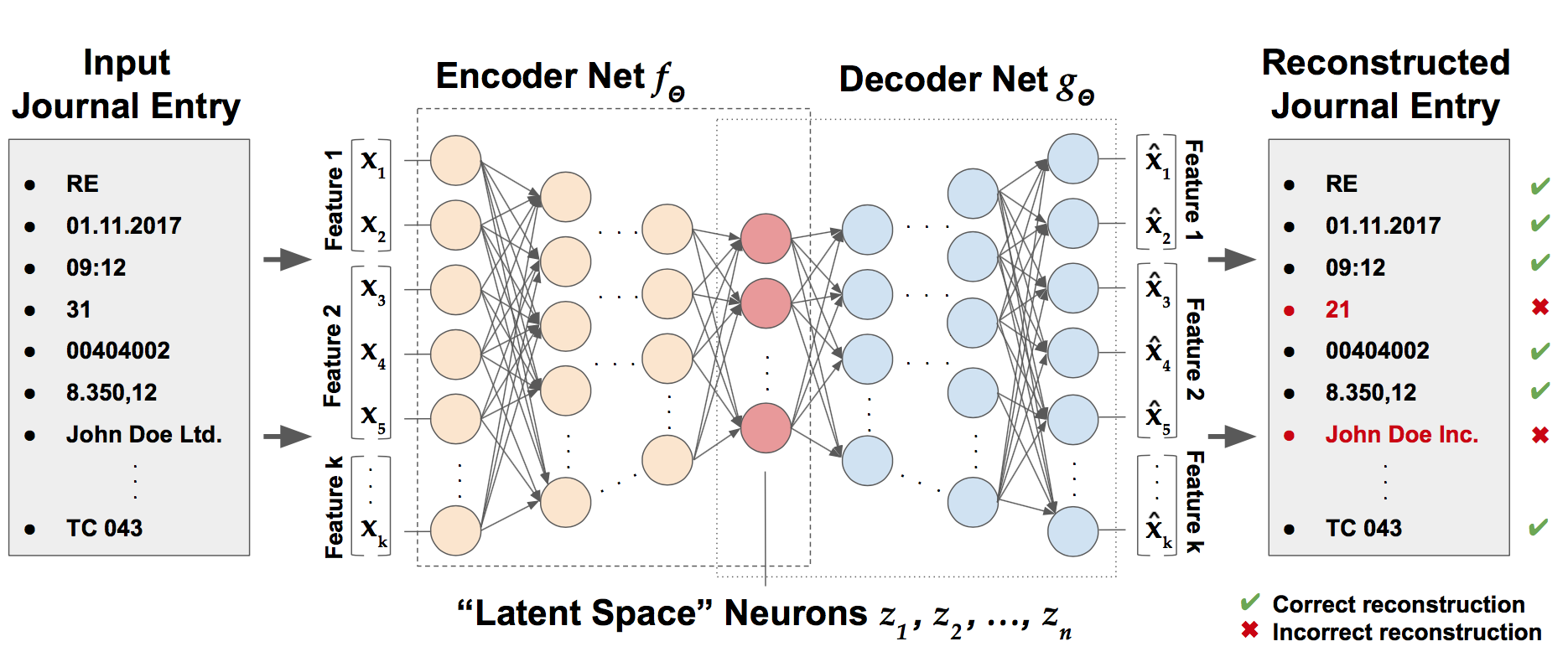Tensorflow BookAccompanying source code for Machine Learning with TensorFlow. Refer to the book for step-by-step explanations.
Stars: ✭ 4,448 (+4176.92%)
Mutual labels: jupyter-notebook, autoencoder
Keras Idiomatic ProgrammerBooks, Presentations, Workshops, Notebook Labs, and Model Zoo for Software Engineers and Data Scientists wanting to learn the TF.Keras Machine Learning framework
Stars: ✭ 720 (+592.31%)
Mutual labels: jupyter-notebook, autoencoder
Deep Learning For HackersMachine Learning tutorials with TensorFlow 2 and Keras in Python (Jupyter notebooks included) - (LSTMs, Hyperameter tuning, Data preprocessing, Bias-variance tradeoff, Anomaly Detection, Autoencoders, Time Series Forecasting, Object Detection, Sentiment Analysis, Intent Recognition with BERT)
Stars: ✭ 586 (+463.46%)
Mutual labels: jupyter-notebook, anomaly-detection
Deepsvg[NeurIPS 2020] Official code for the paper "DeepSVG: A Hierarchical Generative Network for Vector Graphics Animation". Includes a PyTorch library for deep learning with SVG data.
Stars: ✭ 403 (+287.5%)
Mutual labels: jupyter-notebook, autoencoder
Lipreading Stars: ✭ 49 (-52.88%)
Mutual labels: jupyter-notebook, autoencoder
Generative ModelsAnnotated, understandable, and visually interpretable PyTorch implementations of: VAE, BIRVAE, NSGAN, MMGAN, WGAN, WGANGP, LSGAN, DRAGAN, BEGAN, RaGAN, InfoGAN, fGAN, FisherGAN
Stars: ✭ 438 (+321.15%)
Mutual labels: jupyter-notebook, autoencoder
Ad examplesA collection of anomaly detection methods (iid/point-based, graph and time series) including active learning for anomaly detection/discovery, bayesian rule-mining, description for diversity/explanation/interpretability. Analysis of incorporating label feedback with ensemble and tree-based detectors. Includes adversarial attacks with Graph Convolutional Network.
Stars: ✭ 641 (+516.35%)
Mutual labels: anomaly-detection, autoencoder
2018 Machinelearning Lectures EsaMachine Learning Lectures at the European Space Agency (ESA) in 2018
Stars: ✭ 280 (+169.23%)
Mutual labels: jupyter-notebook, anomaly-detection
Concise Ipython Notebooks For Deep LearningIpython Notebooks for solving problems like classification, segmentation, generation using latest Deep learning algorithms on different publicly available text and image data-sets.
Stars: ✭ 23 (-77.88%)
Mutual labels: jupyter-notebook, autoencoder
Repo 2017Python codes in Machine Learning, NLP, Deep Learning and Reinforcement Learning with Keras and Theano
Stars: ✭ 1,123 (+979.81%)
Mutual labels: anomaly-detection, autoencoder
ZhihuThis repo contains the source code in my personal column (https://zhuanlan.zhihu.com/zhaoyeyu), implemented using Python 3.6. Including Natural Language Processing and Computer Vision projects, such as text generation, machine translation, deep convolution GAN and other actual combat code.
Stars: ✭ 3,307 (+3079.81%)
Mutual labels: jupyter-notebook, autoencoder
PyodA Python Toolbox for Scalable Outlier Detection (Anomaly Detection)
Stars: ✭ 5,083 (+4787.5%)
Mutual labels: anomaly-detection, autoencoder
PycaretAn open-source, low-code machine learning library in Python
Stars: ✭ 4,594 (+4317.31%)
Mutual labels: jupyter-notebook, anomaly-detection
TelemanomA framework for using LSTMs to detect anomalies in multivariate time series data. Includes spacecraft anomaly data and experiments from the Mars Science Laboratory and SMAP missions.
Stars: ✭ 589 (+466.35%)
Mutual labels: jupyter-notebook, anomaly-detection
deepADDetection of Accounting Anomalies in the Latent Space using Adversarial Autoencoder Neural Networks - A lab we prepared for the KDD'19 Workshop on Anomaly Detection in Finance that will walk you through the detection of interpretable accounting anomalies using adversarial autoencoder neural networks. The majority of the lab content is based on J…
Stars: ✭ 65 (-37.5%)
Mutual labels: accounting, anomaly-detection
Getting Things Done With PytorchJupyter Notebook tutorials on solving real-world problems with Machine Learning & Deep Learning using PyTorch. Topics: Face detection with Detectron 2, Time Series anomaly detection with LSTM Autoencoders, Object Detection with YOLO v5, Build your first Neural Network, Time Series forecasting for Coronavirus daily cases, Sentiment Analysis with BERT.
Stars: ✭ 738 (+609.62%)
Mutual labels: jupyter-notebook, anomaly-detection
Anomaly detectionThis is a times series anomaly detection algorithm, implemented in Python, for catching multiple anomalies. It uses a moving average with an extreme student deviate (ESD) test to detect anomalous points.
Stars: ✭ 50 (-51.92%)
Mutual labels: jupyter-notebook, anomaly-detection


